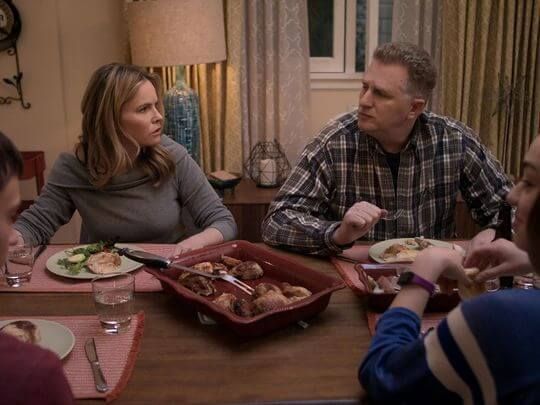Earlier this year, Netflix took a swing at confronting the deeply troubling increases in suicide rates amongst teenagers with an adaptation of 13 Reasons Why. In terms of viewership, it remains a major hit for a company that is $20 billion in debt, but as a depiction of depression, bullying, and suicide,13 Reasons Why is wildly manipulative and astonishing in its cowardice. The show never bothers to depict finite absence, the full range of ugly and misguided responses to such acts, the horror of discovering a lifeless body in such an act, or ... I could honestly go on like this for another paragraph. Rather than lend insight or the texture of experience to its drama, its main goal seemed to be nothing more than to make suicide intriguing and sexy, which means it was doomed from its very conception.
This reaction to 13 Reasons Why wasn't unique, and its Season 2 renewal was met with similar invective and a grand chorus of Tina Belcher groans on Twitter, in the press, and even from us here at Collider. Nevertheless, it's clear that Netflix doesn't care about being perceived as opportunistic or soft in their depictions of suicide (13 Reasons Why), prison (Orange is the New Black), or the white working class (The Ranch). And this would come to explain where we have arrived with Atypical, a passive, well-researched, and well-meaning family comedy centered on Sam (Keir Gilchrist), a teenage boy who is "on the spectrum" and now looking for a girlfriend.
The series' writers clearly talked extensively with families, doctors, therapists, and specialists of all sorts to fully understand how people on the autism spectrum communicate and how they discuss their various processes in their condition. In fact, the clarity of the research begins to impinge on the attempted naturalness of the world, such as when Sam's mother, Elsa (Jennifer Jason Leigh), drops random lines about the levels of a certain brain chemical in everyday conversation. Perhaps this is accurate to someone's experiences, but in the moment, there's the overwhelming sense that the show's creators are more concerned with the audience knowing that they did their homework than making a scene or sequence feel organic and convincing in its dramatic aspects.
That being said, it's not like Atypical has particularly grand aspirations in its drama. Fans of Freeform programming and direct-to-streaming sex comedies will notice a similarity in structure and tone in Atypical almost immediately. As Sam begins to feel his first desires for a girlfriend, his track-star sister, Casey (Brigette Lundy-Paine), begins seeing the goofy brother of a younger girl that Casey saved from bullying. Meanwhile, Elsa and Sam's father, Doug (Michael Rapaport), are trying to get their relationship back on track after 18 years of guiding Sam through the rougher patches of his condition. Doug wants to work on being friends with his son, whereas Elsa starts wondering if she wants an entirely different existence than the one she's been stuck with for most of her life.
There are major issues at play in the lives of these family members, and from what I've seen of Atypical -- about four episodes -- it's not entirely dedicated to exploring the ups and downs of those sticky situations. Though embarrassing and confusing for him, Sam's early sojourn into the realm of sex both blows up and resolves without much pain, and the ease with which the whole scenario unfolds makes it clear that the focus was entirely on Sam learning a lesson about sex. The young woman who goes out with him is little more than a walking, talking invitation to sex, and her dialogue is little more than compliments and the deployment of that offer. And if it weren't for the natural charms and unforced humor of Mr. Rapaport, Doug would come off as nothing more than a cypher, as the character is written as if he has only been aware of his son's condition for a year or so. One might call it carelessness, but the truth is that it's a brazen tactic to set Doug up as the natural foil to Elsa, who is over-protective, well-versed in the jargon, and obviously knows every single word that's been written down on any medical chart involving Sam.
All that said, there's little doubt in my mind that certain families with children on the spectrum and, yes, fans of family-centric sitcoms will likely find something to like about Atypical, more than likely tied to its unimpeachable cast. The show's creator, Robia Rashid, is known for enlivening the sitcom format with small twists of premise in hits like How I Met Your Mother and The Goldbergs, and she seems to be doing the same with Atypical at the cost of downplaying the stresses, compromises, and pain of living constantly with such a condition. In trying to make autism fit into the sitcom formula, rather than the other way around, Rashid and her creative team have essentially just made another mediocre sitcom, which even at its worst isn't worth getting too riled about. And yet, there's something fundamentally uncouth about Atypical's place in Netflix's ongoing desire to virtue-signal to every corner of its audience without confronting the complex problems that might actually lead to sincere virtue.
Review: ★★
Atypical premieres Friday, August 11th on Netflix.






